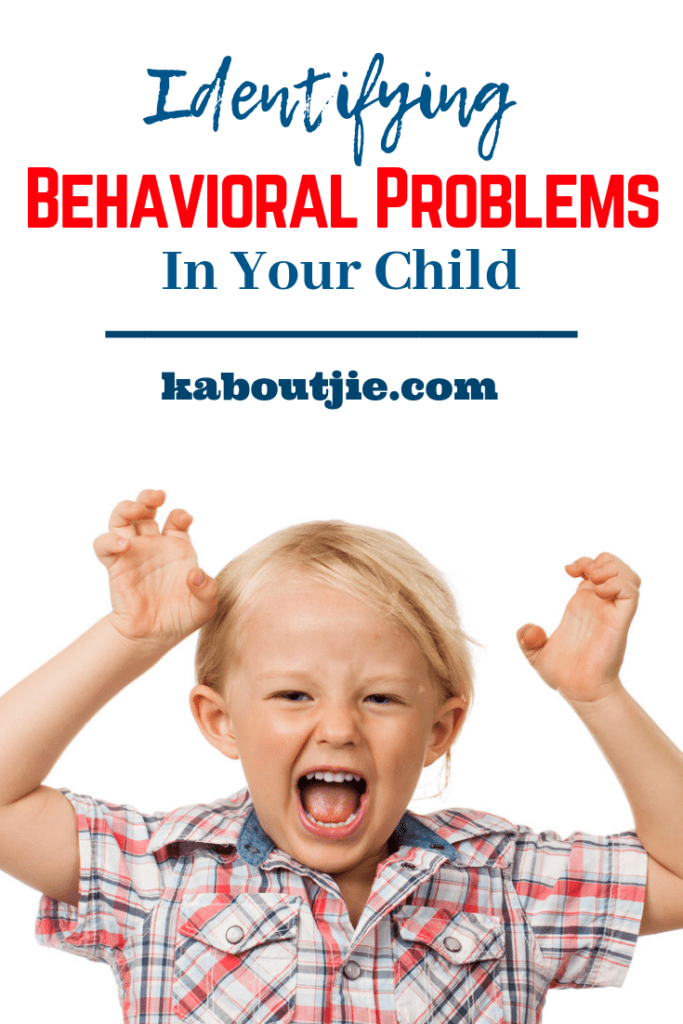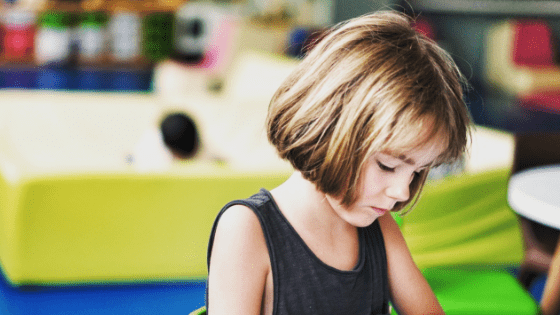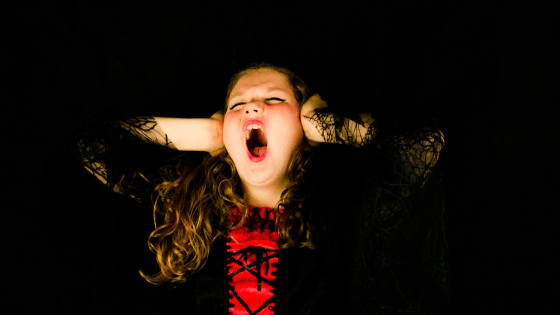Amidst all the worries that come with being a parent, potentially dealing with a child with behavioral or emotional problems is no walk in the park.
A behavioral problem is defined as “a symptomatic expression of emotional or interpersonal maladjustment especially in children”.
While all children go through various emotional difficulties (just like adults) that will fade over time, some problems can persist leading to the development of inappropriate responses to certain situations.
As a parent, you fear that your child will be treated unfairly and want what’s best for them. For these reasons, finding out if your child is going through a phase of emotions or if their behavior is something more is important. You can visit Mommy Authority for more parenting advice, click here for more.

Different Types Of Behavioural Disorders
Disruptive behavioral disorders are the leading reason why parents are advised to take their children for mental assessments. While these conditions can also be common in adults, if left untreated in adolescence, they could lead to more serious problems later in life.
Attention Deficit Hyperactivity Disorder (ADHD)
ADHD is a brain disorder characterized by three distinct attributes (inattention, hyperactivity, and impulsivity). While most common in children and teens, this condition can extend into adulthood.
Children with this condition are often hyperactive and find it difficult to remain focused or to pay attention – which can interfere with their schooling and social lives.
Causes
ADHD can be caused by a variety of different factors. If a parent has this disorder there is a 50% chance that the child could have it as well. Difficulties during pregnancy is another contributor. If a child is born below weight or prematurely there is a possibility that they could develop ADHD.
Symptoms
- Interrupts and has trouble waiting their turn.
- Finds it difficult to sit still and is prone to fidgeting.
- Difficulty playing quietly or calmly partaking in a task.
- Lack of focus and paying attention.
- Shows interest in various things but can’t complete them.
Treatment
If your child has ADHD, there are several treatments you can consider. Medications, such as Ritalin, are available but the long-term use of these prescriptions may have negative effects. However, alternative and more natural solutions do exist and include therapy and supplements.
Read Also: 6 Tips To Help Your Child With Auditory Processing Disorder Cope At School & Home
Oppositional Defiant Disorder (ODD)
This disorder is characterized by ongoing irritability and moodiness. Children with ODD will often display defiant or argumentative behavior, especially toward people in authority. Conditions of this nature often negatively affect a child’s relationship with their parents and teachers.
Causes
While there are no known causes of Oppositional Defiant Disorder, it is believed that a child’s environment and genetics may play a role. Neurobiological differences in how the brain functions and a child’s natural temperament are two possible factors. From an environmental standpoint, abuse or neglect could also lead to the development of ODD.
Symptoms
- Displays physical aggression and fits of anger.
- Often verbally abusive towards others.
- Vindictive and purposefully vexatious.
- Prone to arguments and defiant of rules.
Treatment
The most common treatments for Oppositional Defiant Disorder consist of psychotherapy and medications. However, family and behavior therapy is seen as the most recommended course of action you can take.

Anxiety Disorders
Anxiety disorders are a group of conditions that result in your child experiencing overwhelming feelings of hopelessness, depression, and anxiety. These disorders can be broken up into phobias, panic disorder, social anxiety disorder, and general anxiety disorder.
Causes
Anxiety disorders can be caused by a variety of different situations. Genetics (if there is a history of anxiety in the family), exposure to an emotional and stressful event (death or illness in the family), and abuse – could all contribute to your child’s anxiety.
Symptoms
- Experiencing panic, fear and a general sense of unease.
- Having problems sleeping.
- The inability to stay calm.
- Numb or tingling hands and feet.
- Heart palpitations and shortness of breath.
- Nausea, dizziness and tensing of muscles.
Treatment
Antidepressant, anticonvulsant and antipsychotic medications are typically administered for children struggling with an anxiety disorder. Although, psychotherapy, counseling and behavioral psychology are other avenues worth exploring.
Obsessive-Compulsive Disorder (OCD)
Obsessive-Compulsive Disorder, or OCD, is an anxiety disorder that is characterized by recurring and repetitive, unwanted thoughts, behavioral patterns, and rituals – that makes a person with OCD feel driven to compulsive habits.
Causes
There are three main factors that could trigger OCD in a child. These causes include biological changes in the body or brain’s chemistry, genetics (this is still disputed) and some environmental factors.
Symptoms
- Constant concern about germs, falling ill or even dying.
- Unexplained fear of doing something wrong and bad things happening.
- Repetitive rituals and compulsive habits, such as washing hands and having to complete a simple task several times.
- Experiencing unwanted disturbing thoughts of a sexual or harmful nature.
Treatments
OCD is most commonly treated via cognitive behavioral therapy. However, psychiatric medications may be considered for more extreme and severe cases.
Amngry
Intermittent Explosive Disorder
Intermittent Explosive Disorder is defined as a condition which causes unexplained outbursts of anger and violence. Sufferers will often become enraged and grossly overreact to situations. This condition is a chronic disorder that can continue for many years, however, its severity is said to diminish with age.
Causes
If a child is exposed to an environment in which violent, abusive or explosive behavior is a norm, they are more likely to develop this disorder. It is also believed that the way in which the brain functions could be another factor.
Symptoms
- A low or zero tolerance when frustrated.
- Violent mood swings and outbursts of intense anger.
- Highly irritable.
- A sense of being out of control and being depressed.
- A deep feeling of guilt following an episode.
Treatment
There are different types of medications that help treat this disorder and include anti-convulsion and psychiatric drugs. Therapy and taking your child to a support group are alternatives to the medical treatment options.
If you are concerned that your child may be suffering from one of these disorders, it is strongly advised that you seek professional help and advice. Ask your health care and medical practitioner about diagnosis and treatment.
About The Author
Chloe is a biology lover and mom to three young children. When she is not busy being a mom and trying her hand at cooking various healthy recipes she finds online, she is blogging about her number one love, parenting her three beautiful children.
 Kaboutjie SA Mommy Blogs by Lynne Huysamen
Kaboutjie SA Mommy Blogs by Lynne Huysamen





My aunt experienced this such behavior with her son it was very bad and uncomfortable.
Thank you for sharing very informative article
I am so happy that I saved this post. And thank you for sharing.🙏🏼